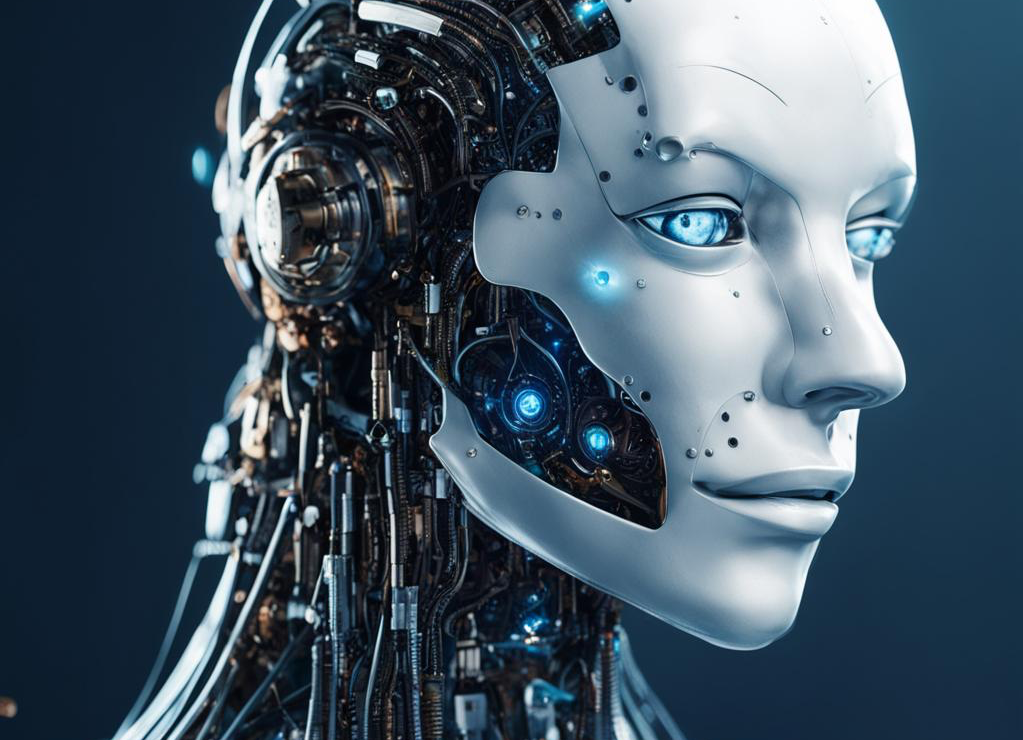
Welcome to the exciting world of evolving customer service, where innovative technologies are revolutionizing the way businesses interact with their customers. One such groundbreaking advancement is the rise of chatbots, taking center stage in providing efficient and immediate support. And leading this transformative movement is ChatGPT – an intelligent language model that’s poised to redefine customer service as we know it.
In this blog post, we will delve into the fascinating realm of ChatGPT and explore its capabilities, benefits, as well as challenges. So put on your tech-savvy hat and get ready to embark on a journey that promises improved customer experiences and enhanced operational efficiency. Let’s dive right in!
The Rise of Chatbots in Customer Service
Over the past few years, we have witnessed a remarkable surge in the use of chatbots within customer service. These intelligent virtual assistants are designed to simulate human conversations and provide instant support to customers. Gone are the days of waiting on hold or sending emails into the abyss; chatbots offer real-time assistance, 24/7.
The rise of chatbots can be attributed to several factors. They allow businesses to streamline their customer service operations by handling routine inquiries and frequently asked questions. This frees up valuable time for human agents to focus on more complex issues that require personalized attention.
Chatbots offer unparalleled scalability. They can handle multiple conversations simultaneously without compromising on efficiency or accuracy. This means that businesses can cater to a larger customer base without having to exponentially increase their workforce.
Advancements in natural language processing (NLP) have greatly enhanced the conversational abilities of chatbots. By analyzing user inputs and providing contextually relevant responses, these bots can engage customers in meaningful interactions that feel almost indistinguishable from humans.
As technology continues to evolve rapidly, so do consumer expectations. Customers now demand instant gratification and round-the-clock support – something that traditional customer service models struggle to deliver consistently. Chatbots bridge this gap by offering prompt responses at any time of day or night.

Understanding ChatGPT: What is it?
ChatGPT, also known as GPT-3 (Generative Pre-trained Transformer 3), is an advanced language model developed by OpenAI. It leverages the power of artificial intelligence and machine learning to generate human-like responses in real-time conversations.
This cutting-edge technology has revolutionized customer service by enabling businesses to provide efficient and personalized support round the clock. With its ability to understand context, answer questions, and engage in meaningful exchanges, ChatGPT has become a game-changer in the field of customer service.
One key aspect that sets ChatGPT apart from traditional chatbots is its capability to comprehend natural language patterns. By analyzing vast amounts of data during its training phase, this AI-powered system has acquired impressive linguistic abilities. It can adapt its responses based on previous interactions and user feedback, making each conversation more tailored and relevant.
ChatGPT relies on deep learning algorithms to constantly improve itself through trial-and-error processes. This means that over time, it becomes better at understanding complex queries and crafting accurate replies.
In addition to enhancing efficiency for businesses’ customer support teams, ChatGPT offers benefits such as reduced response times and increased customer satisfaction. Its ability to handle multiple inquiries simultaneously allows for faster resolution of issues while maintaining a high level of accuracy.
Since ChatGPT can be integrated into various communication platforms like websites or messaging apps seamlessly; customers can reach out for assistance anytime without having to wait for a live agent’s availability. This convenience enhances overall user experience while reducing operational costs for businesses.
Impressive ChatGPT may be when it comes to generating human-like responses; there are still some limitations that need addressing. For instance, it might occasionally produce incorrect or nonsensical answers due to biases present in the training data or lack of knowledge about certain topics.
How ChatGPT Works
ChatGPT, an advanced language model developed by OpenAI, works through a two-step process: pre-training and fine-tuning. During the pre-training phase, ChatGPT learns from a vast amount of internet text to understand grammar, facts, and reasoning abilities. It develops a general understanding of language.
In the next step, fine-tuning takes place where ChatGPT gets specialized in specific tasks like customer service. The model is trained on custom datasets that include demonstrations of correct behavior as well as comparisons between different responses.
Once deployed for customer service interactions, ChatGPT uses its knowledge base acquired during training to generate responses based on user inputs. It can understand prompts and context provided by users to deliver more accurate and relevant replies.
It’s important to note that ChatGPT has some limitations. It may sometimes produce incorrect or nonsensical answers. Additionally, it can be sensitive to input phrasing and may give different responses with slight variations in how questions are asked.
To enhance its capabilities further, OpenAI follows principles such as iterative deployment followed by monitoring and feedback gathering from human reviewers who help improve the system over time while maintaining quality control.
The workings of ChatGPT are fascinating yet complex; nonetheless, it holds immense potential for revolutionizing customer service interactions with its ability to provide automated assistance using natural language processing technology.
Benefits of Using ChatGPT for Customer Service
ChatGPT offers numerous benefits for customer service teams, revolutionizing the way businesses interact with their customers. It enables businesses to provide round-the-clock support, ensuring that customers can get assistance at any time of the day or night. This 24/7 availability enhances customer satisfaction and helps build trust and loyalty.
ChatGPT is incredibly efficient in handling multiple queries simultaneously. Unlike human agents who are limited by their capacity to handle only a certain number of conversations at once, ChatGPT can engage in countless interactions concurrently. This leads to reduced wait times for customers and allows businesses to address a larger volume of inquiries in a shorter period.
Another advantage lies in the consistency of responses provided by ChatGPT. Human agents may vary in terms of knowledge level or personal biases which can result in inconsistent information being shared with customers. With ChatGPT, there is a standard set of accurate responses based on data inputs from various sources.
ChatGPT has the ability to learn from every interaction it engages in. By continuously analyzing and adapting its responses based on user feedback and real-time data input, it becomes more adept at addressing complex queries over time. This learning capability ensures that customer experiences improve over time as well.
Implementing ChatGPT for customer service results in cost savings for businesses as they no longer need to hire and train large teams of support staff. Instead, they can rely on an AI-powered solution that handles most routine inquiries effectively while freeing up human agents’ time to focus on more specialized or complex tasks.
Integrating ChatGPT into customer service operations brings significant benefits such as enhanced availability, increased efficiency, consistent responses across interactions, continuous learning capabilities,and cost savings – all contributing towards improved customer experiences and business success.
Challenges and Limitations of ChatGPT
While ChatGPT has proven to be a powerful tool in revolutionizing customer service, it is not without its challenges and limitations. One prominent challenge is the potential for biased or inaccurate responses. Since ChatGPT generates responses based on patterns it learns from existing data, there is a risk that it may perpetuate biases or provide incorrect information.
Another limitation of ChatGPT is its lack of context awareness. It cannot remember past interactions or refer back to previous conversations, which can lead to disjointed exchanges and frustration for users seeking continuity in their customer service experience.
Language nuances and ambiguity pose difficulties for ChatGPT. It may struggle with understanding sarcasm, humor, or complex questions that require contextual comprehension. This can result in inadequate or off-topic responses that do not address the user’s needs effectively.
Privacy concerns also arise when using chatbots like ChatGPT. As valuable as these tools are in streamlining customer support processes, they collect vast amounts of personal data during interactions. Safeguarding this sensitive information becomes crucial to maintain trust between businesses and customers.
Despite these challenges and limitations, developers continue to work towards improving the capabilities of chatbots like ChatGPT by refining training methodologies and implementing better safeguards against bias and inaccuracies.
The Evolution of Customer Service
As technology continues to advance at a rapid pace, the future implications for customer service are vast and exciting. One significant development that is shaping this evolution is the emergence of ChatGPT. With its ability to understand and respond to human-like conversation, it has the potential to revolutionize customer interactions.
Imagine a world where customers can receive personalized assistance 24/7 without having to wait for a human representative. Chatbots powered by advanced AI models like ChatGPT can handle routine inquiries efficiently, freeing up human agents to focus on more complex issues. This efficiency not only improves response times but also enhances overall customer satisfaction.
As ChatGPT learns from each interaction, its knowledge base expands, enabling it to provide even better support over time. By analyzing past conversations and leveraging data insights, businesses can gain valuable information about customer preferences and pain points. This information can then be used strategically in product development or marketing strategies.
While the potential benefits of using AI-powered chatbots like ChatGPT are immense, there are challenges that need addressing. One such challenge is maintaining ethical standards in handling sensitive customer information. Striking the right balance between automation and human intervention will be crucial in ensuring privacy and data security.
Relying solely on chatbots may not always meet every customer’s needs effectively. Some individuals may still prefer direct human interaction or have unique queries that require complex problem-solving skills beyond what current AI technologies offer.
We see great promise for the future of customer service with advancements in Natural Language Processing (NLP) and machine learning algorithms refining chatbot capabilities even further. As these technologies continue to evolve rapidly, we can expect improved accuracy in understanding context-specific nuances during conversations—a vital aspect when dealing with diverse customers across different cultures.
Conclusion
As customer service continues to evolve, it is clear that ChatGPT is at the forefront of this transformation. The rise of chatbots in customer service has brought about a new era of efficiency and convenience for businesses and customers alike.
ChatGPT, with its advanced language processing capabilities, offers a seamless and interactive experience for users. It can understand natural language queries and provide accurate responses in real-time. This technology has the potential to revolutionize customer service by reducing response times, improving problem resolution rates, and enhancing overall satisfaction.
While there are challenges and limitations associated with ChatGPT, such as occasional inaccuracies or difficulty understanding complex queries, continuous advancements in artificial intelligence will likely address these issues over time.
Looking ahead, we can expect even more sophisticated versions of ChatGPT that will further enhance the customer service experience. As AI models continue to be trained on vast amounts of data across various industries, they will become increasingly adept at handling diverse scenarios and delivering personalized solutions.
ChatGPT marks an exciting milestone in the evolution of customer service. Its ability to understand and respond to human interactions is remarkable, paving the way for more efficient communication between businesses and their customers. With ongoing developments in AI technology, we can anticipate a future where virtual assistants like ChatGPT become an indispensable part of every business’s customer support strategy.

